International Mother Language Day (IMLD), observed on February 21st, holds a profound significance for the people of Bangladesh. Every year on this day, Bangladesh commemorates a unique and deeply emotional chapter in its history. The day is a reminder of the sacrifices made by the students, youth, and general populace who laid down their lives to protect and promote the Bengali language during the Language Movement of 1952.
In this blog, we will take a closer look at the importance of International Mother Language Day, the origins of this observance in Bangladesh, and how it continues to impact not just the nation, but the world in terms of linguistic rights, cultural preservation, and promoting peace.
The Historical Roots of International Mother Language Day
The origins of International Mother Language Day (IMLD) are intricately linked with the struggle of the Bangladeshi people in the 1950s. During the early days of the creation of Pakistan, which Bangladesh was a part of (as East Pakistan), the central government in West Pakistan declared Urdu as the only national language of the newly-formed state, disregarding the majority of the population in East Pakistan who spoke Bengali.
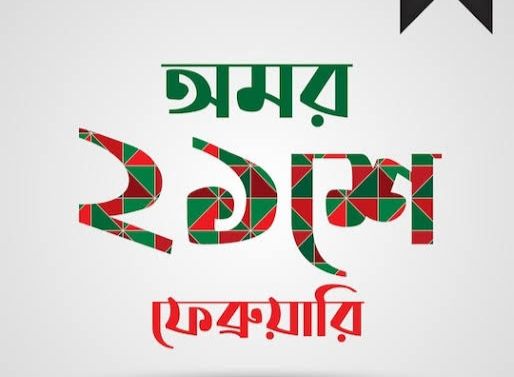
Image sdownlode for freepik website
This imposition of Urdu as the official language created a rift between the people of East and West Pakistan, leading to growing unrest in East Pakistan. The language was not just a tool of communication; it was a core aspect of identity, culture, and social cohesion for the Bengalis. The government’s refusal to acknowledge Bengali as a state language was seen as an affront to the very soul of the people in the East.
On February 21, 1952, a group of students from Dhaka University and various other institutions organized a peaceful protest against the government’s decision. They demanded that Bengali be made one of the official languages of the state. The protest turned violent when police forces opened fire on the demonstrators, killing several students. The tragedy of that day left an indelible mark on the national consciousness, and it became known as the Language Movement Martyrs Day (Shaheed Dibosh) in Bangladesh.
However, it wasn’t just a localized event in Bangladesh. The significance of this day reached a global scale when, in 1999, the United Nations Educational, Scientific and Cultural Organization (UNESCO) declared February 21st as International Mother Language Day. The goal was to raise awareness of linguistic diversity, the protection of endangered languages, and the preservation of cultures through language.
The Role of Language in National Identity
Language is much more than a mode of communication. It embodies the collective memory, history, and identity of a people. For the people of Bangladesh, the struggle for the recognition of Bengali as an official language was not only about language but also about the affirmation of their identity, culture, and autonomy.
In a globalized world where dominant languages such as English, Mandarin, and Spanish have an overwhelming presence, smaller and regional languages often face the risk of extinction. Bangladesh’s steadfast commitment to celebrating International Mother Language Day underscores the importance of protecting one’s mother tongue in maintaining cultural heritage and promoting diversity in an interconnected world.
The Language Movement of 1952: A Symbol of Resistance
To fully understand the gravity of February 21st, one must explore the events surrounding the Language Movement of 1952 in greater detail. After the creation of Pakistan in 1947, the country was divided into two geographically distant regions – East Pakistan and West Pakistan. The two regions were culturally, linguistically, and socially distinct. East Pakistan, where the majority of the population spoke Bengali, was economically disadvantaged compared to the more industrialized West Pakistan, which primarily spoke Urdu and Punjabi.
In the early 1950s, the government of Pakistan, under the leadership of Mohammad Ali Jinnah, sought to impose Urdu as the only official language of the country. The people of East Pakistan, who identified strongly with the Bengali language, viewed this as an attempt to undermine their cultural identity. As Bengali was the language of the majority, the demand for its recognition was both a matter of justice and pride.
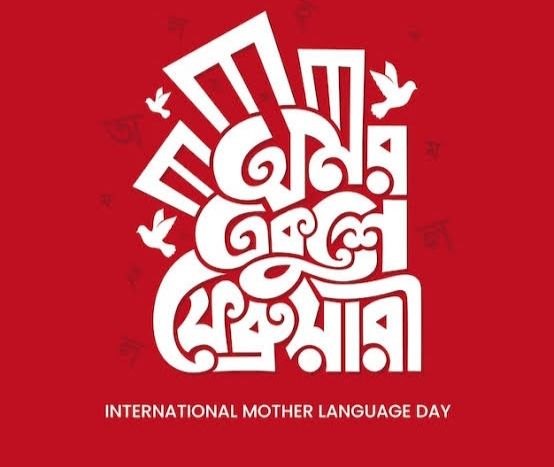
Image downlode for freepik website
On February 21, 1952, when a group of students and civilians took to the streets of Dhaka to protest the government's stance, they were met with violent resistance from the police. As the protests escalated, the police opened fire on the unarmed demonstrators, killing several students and injuring many others. This tragic event left a deep emotional scar on the nation, and the victims came to be remembered as the martyrs of the Language Movement.
Though the movement did not immediately succeed in making Bengali an official language of Pakistan, it laid the groundwork for the broader political and social movement that would eventually lead to the creation of Bangladesh in 1971. The day was immortalized as Shaheed Dibosh (Martyrs Day), and every year, on February 21st, the people of Bangladesh honor the martyrs who gave their lives to protect their language and identity.
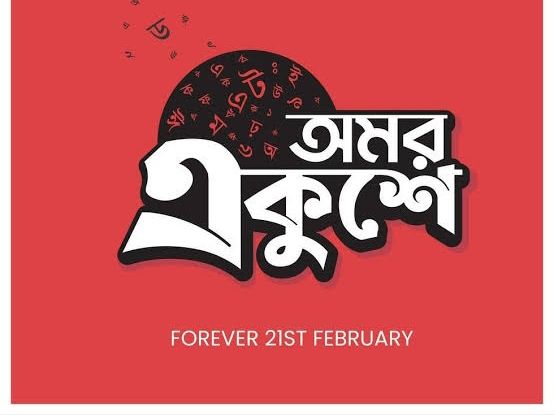
Image dowmlode for freepik websites
The Legacy of the Language Movement in Bangladesh Today
The events of February 21, 1952, remain an essential part of Bangladesh's collective memory. The Language Movement not only paved the way for the recognition of Bengali as one of the state languages of Pakistan but also served as a precursor to the Bangladesh Liberation War of 1971. The call for the recognition of Bengali was intrinsically tied to the struggle for political autonomy, economic justice, and the desire for self-determination.
In the decades following independence, the significance of International Mother Language Day in Bangladesh has only grown. Every year, the nation observes the day with solemnity and reverence, and it is marked by various events, including memorial services, cultural programs, and educational initiatives. The national monument of the Shaheed Minar in Dhaka, built to honor the martyrs of 1952, serves as the focal point for these observances. Millions of people, including students, political leaders, and citizens, gather at the monument to pay homage by placing flowers at its base.
International Impact of International Mother Language Day
While the origins of International Mother Language Day lie in the Language Movement of Bangladesh, its impact has been felt worldwide. UNESCO’s decision to recognize February 21st as IMLD highlights the global importance of language preservation and the right of all people to speak and learn in their mother tongue.
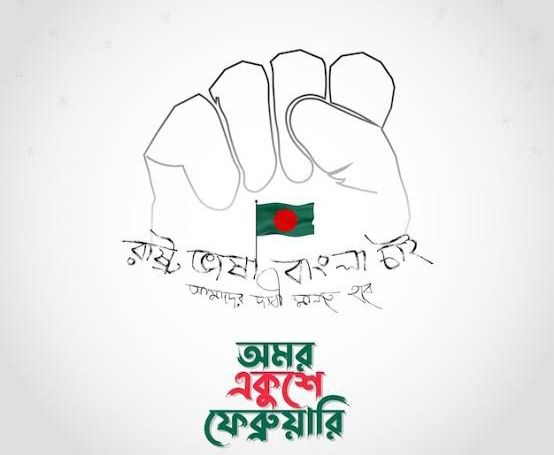
Image downlode for freepik website.
According to UNESCO, there are approximately 7,000 languages spoken worldwide, and many of them are at risk of disappearing. It is estimated that one language dies every two weeks, which has significant consequences not just for linguistic diversity, but for the loss of cultural traditions, knowledge systems, and heritage.
International Mother Language Day calls attention to this issue and encourages communities and governments to take active steps to preserve languages that are at risk of extinction. This day serves as a reminder that linguistic diversity is essential for social cohesion and peaceful coexistence. Moreover, it is a call for governments, organizations, and individuals to recognize that all languages, no matter how small or localized, have intrinsic value and contribute to the broader cultural mosaic of the world.
In Bangladesh, the observance of IMLD has helped foster a deeper appreciation of linguistic and cultural diversity. The country has been a vocal advocate for language rights at the international level, and the Language Movement of 1952 remains a symbol of resistance against linguistic and cultural marginalization.
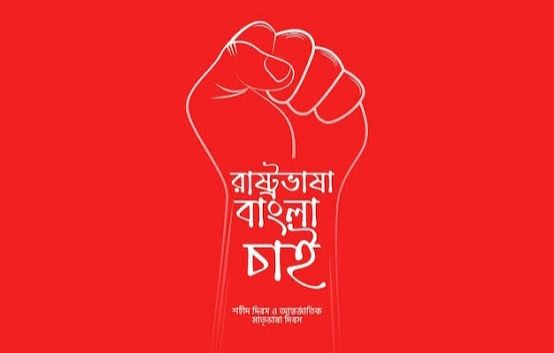
Image downlode for freepik websites
The Role of Education in Language Preservation
Education plays a critical role in the preservation of languages. In Bangladesh, the promotion of Bengali as the official language and its integration into the education system has contributed to the growth and flourishing of the language. Today, Bengali is not only the official language of Bangladesh but is also spoken by millions in parts of India, including West Bengal, Assam, and Tripura. It is one of the most widely spoken languages in the world.
The importance of education in the mother tongue cannot be overstated. Research has shown that children learn best in their native language, as it provides a strong foundation for cognitive development and emotional well-being. By teaching children in Bengali, Bangladesh ensures that the language remains alive and vibrant for future generations.
Celebrating Linguistic Diversity and Human Rights
International Mother Language Day is not just about commemorating the past; it is also about looking toward the future. The observance of this day encourages governments, civil society organizations, and individuals to work toward ensuring the linguistic rights of all people, especially in multilingual societies. It promotes understanding, respect, and the celebration of linguistic diversity, which is crucial for fostering peace and social harmony.
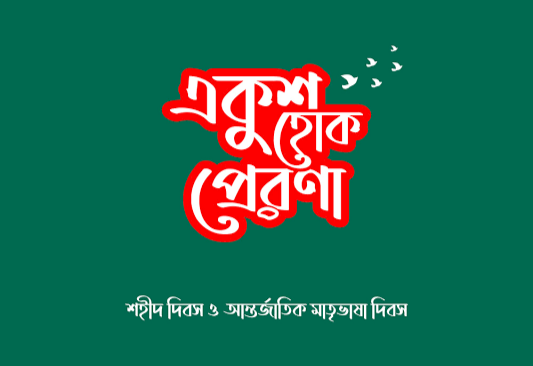
Image downlode for freepik website
The observance of International Mother Language Day on February 21st serves as a powerful reminder of the sacrifices made by the people of Bangladesh in the name of language, culture, and identity. It is a day to remember the martyrs of the Language Movement, whose unwavering commitment to the Bengali language helped shape the nation’s path toward independence and self-determination.
In Bangladesh, the day is an opportunity to reflect on the importance of linguistic diversity and the role that language plays in shaping national identity and fostering social cohesion. It is a day to recognize the rights of all people to speak, learn, and express themselves in their mother tongue.
As we celebrate International Mother Language Day, we must also remember that language is more than just a tool of communication—it is a powerful force that shapes our worldviews, connects us to our heritage, and unites us in our shared humanity.
Video credit Prothom alo
So far Today...
Stay Home
Thanks for Your Time Friend.
♥♥♥♥♥♥
Ok
See you Again in a New blog.
Thanks for being with me.
Plese Follow Me......
@mspbro
★★To contact me★★
Subscribe My 3speak Channel https://3speak.online/user/mspbro
Follow me Twitter https://twitter.com/mdsumonpra
Add me Facebook https://www.facebook.com/sumon.mim84